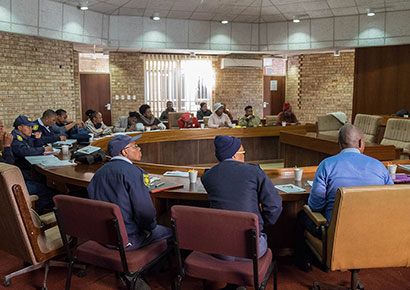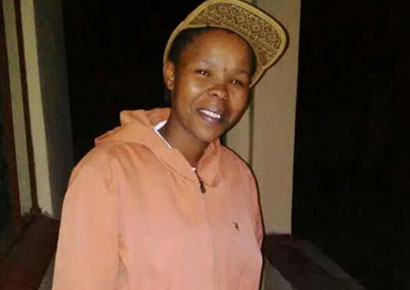Overcoming hate in the wake of the Nonki Smous horror murder

Pic: Vicci Tallis
Following the hate murder of Nonki Smous earlier this year, an organisation has stepped up to help build much-needed bridges between Kroonstad’s LGBTI community and police, health and social services.
In April, members of the LGBTI community in the area were shaken when the burned body of the 28-year-old openly lesbian Smous was found in the township of Maokeng.
Because the body was burned beyond recognition, her family spent weeks in emotional limbo awaiting DNA confirmation of her identity.
To make matters worse, there were reports that LGBTI activists were allegedly threatened by one of the suspects in the young woman’s rape and murder.
In response to the aftermath of the brutal incident, Enza Social Research set up and rolled out a crucial training intervention at the Moqhaka Local Municipality in Maokeng, Kroonstad, last month.
This accredited training was not only aimed at creating relationships between LGBTI activists and police, health and social workers from the area, but critically sought to improve access to social, health and justice services for the LGBTI community in Kroonstad.
Significantly, the participants signed a pledge on the last day of training, committing to work together to provide safe and supportive environments for LGBTI persons who experience sexual and gender based violence.
Local activist, Nthabiseng Mokanyane, confirmed that the session created a starting point for further dialogue. “I think if we can change perceptions, and that’s what this training is doing, it is helping to open eyes to see that we are humans,” said Mokanyane. “We may be victims but when you treat me, treat me as a human, not as someone who … doesn’t deserve services from the government.”
“The session has created a platform where we can start the conversation with the LGBTI community beyond the training itself and discuss how community members can come on board,” commented a participant in the training. “We have also established the partnerships with other government departments, and one thing that binds us all is the Batho Pele principles which requires us to be professional … and help all people equally.”

Nonki Smous
“We have to sustain what has been started,” said another participant. “This training is the baseline – we must have communication with the community, and measure ourselves against this. We want to strive to serve all our people.”
Tracy Jean-Pierre, who facilitated the training, said: “Working with all sectors and the community to begin to build relationships and address prejudice was an important first step in finding solutions. Enza will continue to roll out the model in efforts to prevent violence and ensure justice for lesbian women.”
Enza’s work targets capacity building and behaviour change among justice, social and healthcare workers who are first responders to sexual assault, enabling them to competently provide the necessary support to survivors.
Leave a Reply